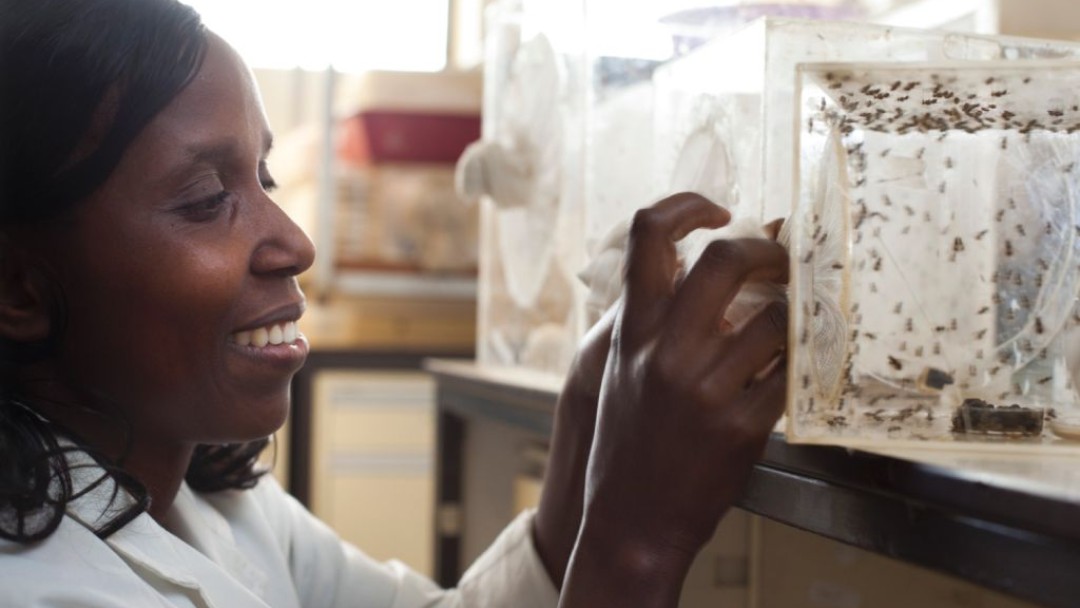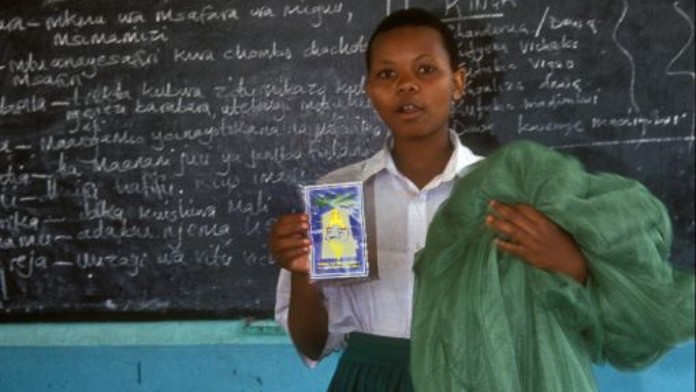News from 2015-04-27 / KfW Development Bank
The fight against malaria
KfW provides support for important vaccination research
The tropical disease malaria threatens more than three billion people in 97 (mainly African) countries. Since 2007, World Malaria Day has been held on 25 April in recognition of the fight against the infectious disease, which killed 584,000 people in 2013 (90 % of whom were children under the age of five).
The main problem is that there is still no effective vaccine for malaria, only prophylactics. This is exacerbated by the fact that the malaria virus and the insects that carry it quickly become resistant to treatment, requiring the constant development of new treatments. Just one rainy season without sufficient protection using saturated mosquito nets causes infection rates to spike sharply.
Nevertheless, significant progress has also been achieved in the fight against the disease. The WHO estimates that around 670 million cases of malaria and 4.3 million resulting deaths were prevented between 2001 and 2013. Yet according to their calculations, more money is required to promote the consistent development of vaccines, treatments and diagnostic tests.
That is why the international community has set up public-private product development partnerships (PDPs). KfW Development Bank is currently supporting four of these PDPs on behalf of the German Federal Ministry of Education and Research (BMBF).
One of the PDPs promoted by KfW is the European Vaccine Initiative (EVI). The EVI is endeavouring to develop a vaccine that prevents serious cases of malaria during pregnancy, since the course of the disease threatens the lives of both the mother and the unborn child.


Private sector also involved
Various pharmaceutical companies are in the process of testing new kinds of vaccines. These include less effective, multi-stage vaccines in addition to the single-dose vaccines preferred by doctors. Multi-stage vaccines or treatments are often not finished because patients do not return. Not only are these patients not protected, they also allow the pathogen to develop resistance to the drugs. This is a significant danger because malaria can spread quickly as a result of the slightest negligence. Another source of concern is the fact that global investment in research on vaccines and insecticides has been falling since 2011.
Research into vaccines and treatments is also being supported by private business, and the oil and gas industry in particular. The companies are primarily interested in reducing the costs associated with sick employees. Nonetheless, experts agree that the private sector could play an important role in the fight against malaria, and still see a good chance of eradicating the disease.
Potential vaccine found
In July 2014, the European Medicines Agency (EMA) submitted a promising vaccine for certification. This drug would be the world's first ever malaria vaccine. Gavi, the global vaccine alliance, agreed back in 2013 to potentially include the vaccine in its portfolio if a licence is granted and the vaccine is recommended by the WHO. This would involve an important, international body in the fight against malaria, and help contain or even eradicate malaria altogether.
Shortly before World Malaria Day, Tübingen-based tropical disease specialist Peter Kremsner announced that his team had successfully tested a malaria vaccine on human subjects. Around 15,500 infants and small children in Africa received the drug as part of a four-year field study. This makes "RTS,S" the first ever malaria vaccine to demonstrate its efficacy in this kind of study. The EMA and WHO are also evaluating the licensing of the vaccine.

Share page
To share the content of this page with your network, click on one of the icons below.
Note on data protection: When you share content, your personal data is transferred to the selected network.
Data protection
Alternatively, you can also copy the short link: https://www.kfw-entwicklungsbank.de/s/enzBWrMC.BCaA
Copy link Link copied